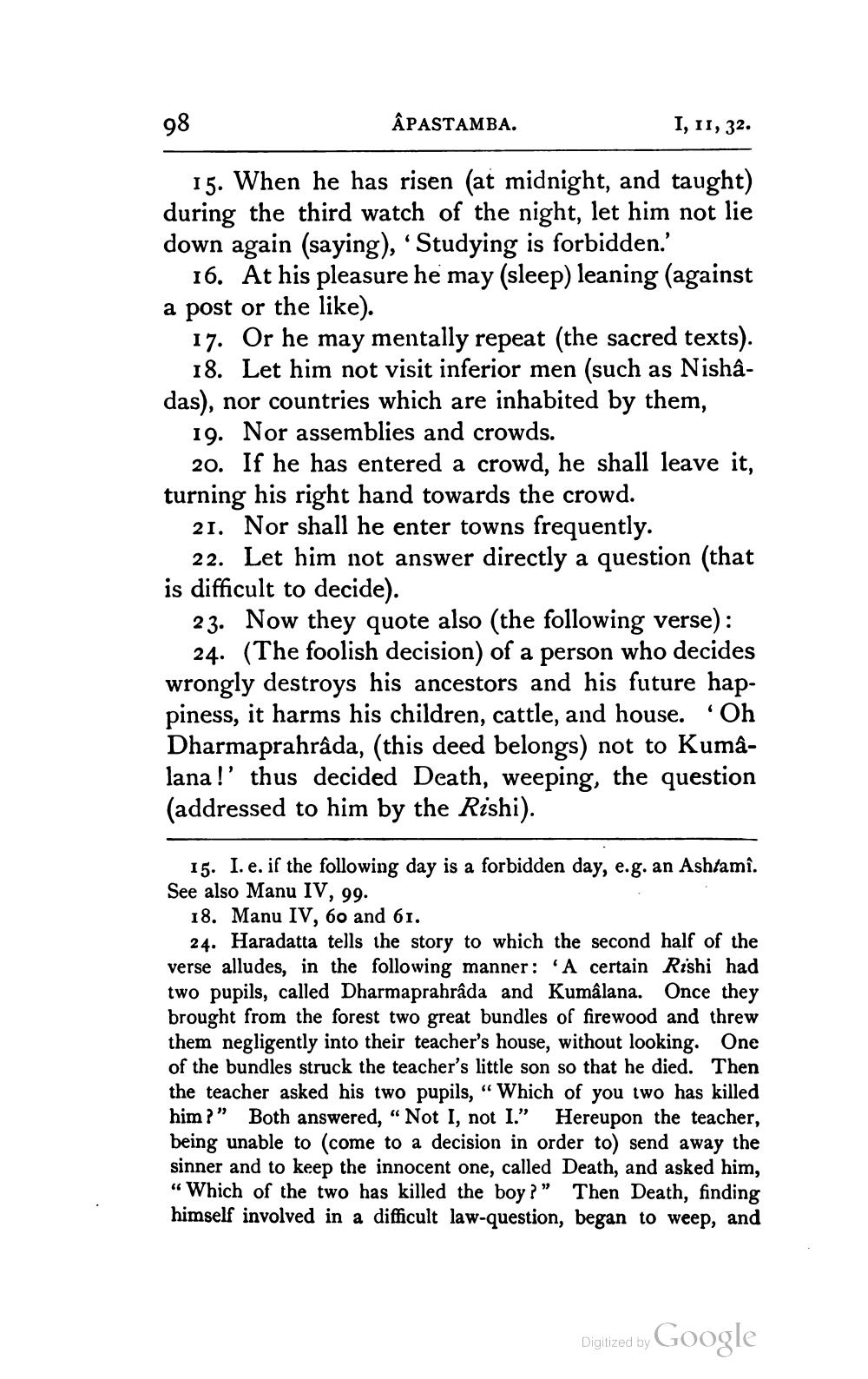________________
98
ÂPASTAMBA.
I, 11, 32.
15. When he has risen (at midnight, and taught) during the third watch of the night, let him not lie down again (saying), 'Studying is forbidden.'
16. At his pleasure he may (sleep) leaning (against a post or the like).
17. Or he may mentally repeat (the sacred texts).
18. Let him not visit inferior men (such as Nishâdas), nor countries which are inhabited by them,
19. Nor assemblies and crowds.
20. If he has entered a crowd, he shall leave it, turning his right hand towards the crowd.
21. Nor shall he enter towns frequently.
22. Let him not answer directly a question (that is difficult to decide).
23. Now they quote also (the following verse):
24. (The foolish decision) of a person who decides wrongly destroys his ancestors and his future happiness, it harms his children, cattle, and house. 'Oh Dharmaprahrada, (this deed belongs) not to Kumalana !' thus decided Death, weeping, the question (addressed to him by the Rishi).
15. I. e. if the following day is a forbidden day, e.g. an Ashtami. See also Manu IV, 99.
18. Manu IV, 60 and 61.
24. Haradatta tells the story to which the second half of the verse alludes, in the following manner: A certain Rishi had two pupils, called Dharmaprahrada and Kumâlana. Once they brought from the forest two great bundles of firewood and threw them negligently into their teacher's house, without looking. One of the bundles struck the teacher's little son so that he died. Then the teacher asked his two pupils, “Which of you two has killed him?" Both answered, “Not I, not I.” Hereupon the teacher, being unable to come to a decision in order to send away the sinner and to keep the innocent one, called Death, and asked him, “ Which of the two has killed the boy?” Then Death, finding himself involved in a difficult law-question, began to weep, and
Digitized by Google




